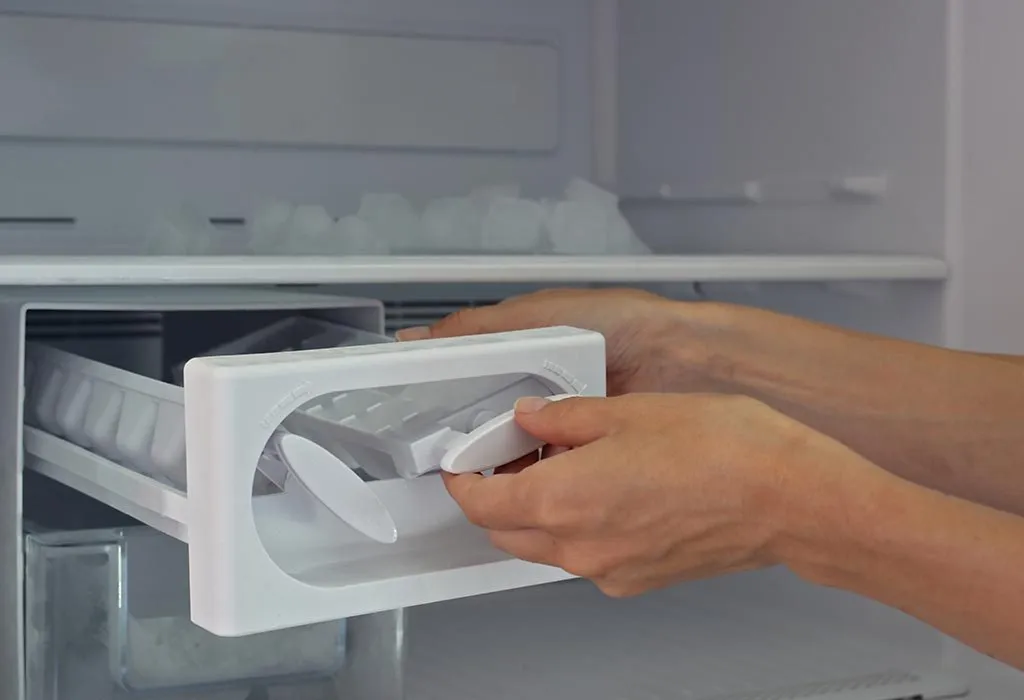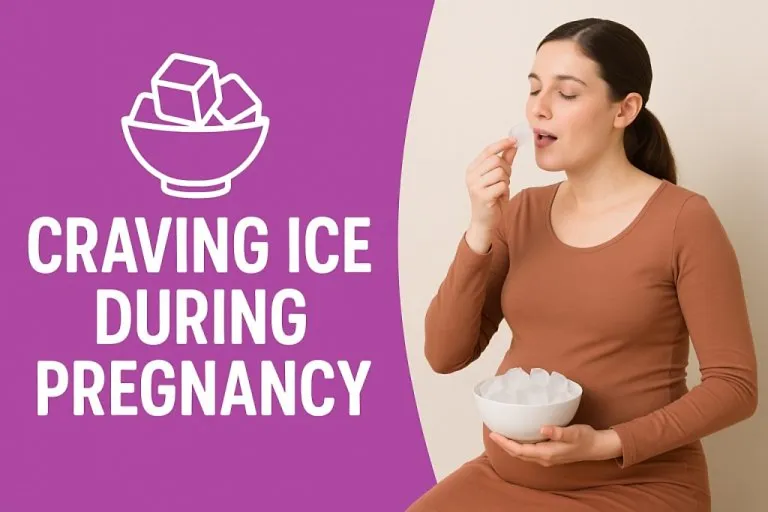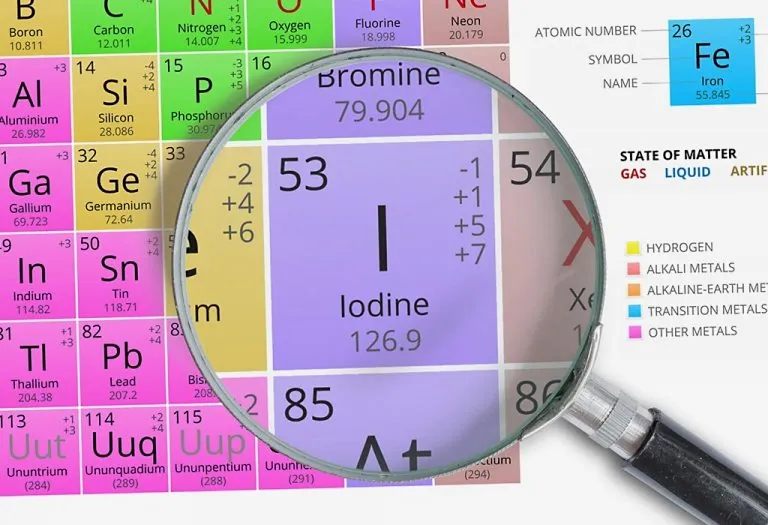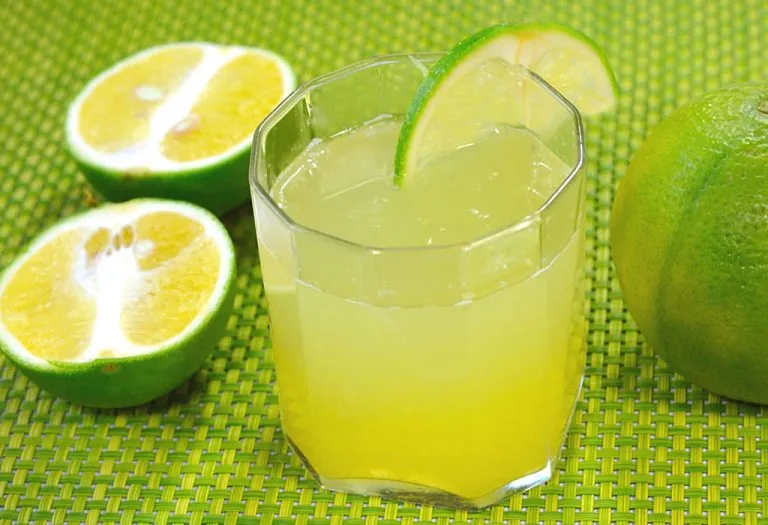Craving Ice While Pregnant – Is It Normal?

- Is Pregnancy Ice Craving Normal?
- Is Craving Ice a Sign of Pregnancy?
- Why Do Pregnant Women Crave Ice?
- Are There Any Benefits of Eating Ice During Pregnancy?
- How Many Ice Cubes Are Safe to Eat During Pregnancy
- Risks of Consuming Excessive Ice in Pregnancy
- How Can Pregnant Women Manage Their Craving for Ice?
- When to Consult the Doctor
- FAQs
When you are pregnant, you can get some of the most unusual food cravings. You may be tempted to eat things that you would avoid earlier, and your favourite food may become the last option. Chewing ice is a huge temptation, and most pregnant women would be surprised by their sudden craving for ice. Though these cravings disappear after delivery, they can put an element of doubt in your mind about its safety. So, is craving ice during pregnancy normal or not? Why do pregnant women have such a sudden craving for ice? Let’s read below to find out.
Is Pregnancy Ice Craving Normal?
During pregnancy, eating ice cubes may become your favourite activity due to the hormonal changes taking place in your body. This is normal, as almost all pregnant women love to do this, and there haven’t been any negative consequences connected to it (1). Ice is not considered harmful to the human body, pregnant or otherwise. Especially when compared to cravings for clay or dirt, ice is surely a safe choice for a pregnant woman.
In medical terms, the temptation to consume ice is known as ‘pagophagia’. However, regular crunching on ice can do a lot of harm to your teeth and also lead to a sore throat because of the cold. The urge to eat non-nutritive items is caused by a condition known as pica, which is common in people who have low iron levels.
Is Craving Ice a Sign of Pregnancy?
Yes, craving for ice is one of the most common signs of pregnancy. Most first-time mothers are unable to understand the significance of these cool cravings of pregnancy, though.
Why Do Pregnant Women Crave Ice?
Pagophagia in pregnancy can cause intense cravings where you would love to gnaw and suck on ice cubes and feel no guilt for doing so. This, however, happens for a few reasons, which are listed below:
1. Morning Sickness
Most women suffer from morning sickness during the first trimester of their pregnancy. Women who have trouble keeping food or even water down can find solace in ice cubes (2). Ice does not have any odour and can be digested easily, unlike other nausea-causing foods. The queasy, early morning feeling seems to ease by crunching ice and could be a cause for its craving. For some women, craving ice in pregnancy begins here as a simple way to manage nausea.
2. Iron Deficiency
This is a serious problem. A powerful and repeated desire to eat ice cubes or any non-food item is a type of pica. This indicates the craving to eat zero-nutrition and non-food items like sand, glue, clay or chalk. Ice, fortunately, isn’t as dangerous, but it has been linked to iron deficiency and has to be brought to your doctor’s notice (3). Pica is still an eating disorder and could lead to health problems during pregnancy. Iron deficiency could lead to anaemia, and your doctor may recommend a B12 vitamin supplement and dietary changes.

3. Heat
A pregnant woman’s blood volume increases by almost 50% and can make her feel hot (4). To cope with the increased blood volume, the blood vessels dilate slightly to help the blood come near the surface. This could make you feel warmer than usual. In the third trimester, your metabolism is also high, which leads to heat. This can result in craving ice water during pregnancy, especially in the summer. By gorging on the ice, this heat can be conquered to some extent and can keep you and your baby hydrated. However, make sure fizzy, sugary cold drinks do not become a part of this routine.
4. Heartburn
Heartburn or acid reflux is an uncomfortable feeling, especially when it rears up at the end of the pregnancy term. During pregnancy, the placenta produces the hormone progesterone, which helps relax the muscles of the uterus. This also opens the valve between the stomach and the oesophagus, thus allowing the stomach acids to travel back easily. Ice is a natural method of combating this uneasy feeling and proves to be a handy home remedy.
5. Burning Mouth Syndrome
Pregnant women often suffer from burning mouth syndrome, which brings about a tingling feeling in the mouth (5). One of the positive effects of eating ice during pregnancy is that it can arrest the pain and numbness in the mouth. Applying ice or consuming it can easily help curb the burning on the lips and the discomfort in the cheeks. Since this syndrome isn’t visible, nor can any tests be carried out, its treatment can be difficult to analyse. If you experience this feeling, make sure your doctor is informed about it.
6. Eating Disorder
Many people have repetitive tendencies like biting nails or washing hands. Since this provides temporary satisfaction, people continue to indulge in it. Eating ice throughout pregnancy can also be connected to the pica disorder, but no research has been able to confirm this. The baby is put at risk since it is being denied vital nutrients as the mother prefers eating ice, leading to serious consequences.
7. Gum Problems
You might crave ice if you are experiencing gum problems to soothe them. But there is not enough proof or research to support this.
8. Stress
Yes, emotional eating is a thing and affects 27% of adults. It can result in either direction — over- or under-eating. Having ice cravings during pregnancy can be a side effect of both diet problems, which are often stress-related.

Are There Any Benefits of Eating Ice During Pregnancy?
Apart from staying hydrated, having ice during pregnancy can benefit you in different ways, like the following:
- It helps soothe the horrors of morning sickness.
- Summer pregnancies can make you feel extra hot, and eating ice is a safe way to cool off (6).
How Many Ice Cubes Are Safe to Eat During Pregnancy
For pregnant women, sucking on a few ice cubes can be a safe and helpful way to stay hydrated and ease nausea. To protect dental health, it’s better to let the ice melt in the mouth instead of crunching it. A moderate amount, such as two to three cubes per sitting, is generally considered appropriate.
Risks of Consuming Excessive Ice in Pregnancy
One should be careful while consuming excessive amounts of ice during pregnancy, as it could cause some problems. The side effects of eating ice while pregnant include:
1. A Tooth Problem
Excessive crunching on ice cubes could damage your teeth, especially during pregnancy. Your tooth enamel could be damaged, thus promoting decay and increased sensitivity towards hot and cold food items (7). It is better to let the ice melt on your tongue instead of biting on the cubes.
2. A Sore Throat
This is one of the prominent side effects of eating ice during pregnancy. A sore throat during pregnancy is a common feature, but if you have included ice cubes into your diet, it could further aggravate the situation. This will irritate the throat, making life difficult in an already challenging situation.
3. Choking
This is a health hazard you should look out for, whether you are pregnant or not. You may inadvertently ingest a large piece of ice, and this could lead to choking. Make sure the ice cubes are small in size, and always watch what you are eating.
4. Seizure
Consumption of excessive ice can lead to electrolyte imbalances and metabolic problems when pregnant (8).
How Can Pregnant Women Manage Their Craving for Ice?
You can manage your craving for ice when pregnant by:
- Try eating iron-rich food and iron-rich supplements.
- Try talking to your psychiatrist, as a craving for ice could have a psychological origin.
When to Consult the Doctor
While chewing ice while pregnant is common, it can sometimes be a sign of an underlying nutrient deficiency that requires medical attention. You should consult your doctor or midwife about ice cravings if you experience any of the following:
- Intense, Overwhelming Cravings: If the urge to chew ice feels compulsive or uncontrollable, and it dominates your thoughts.
- Craving Non-Food Items Alongside Ice: If you also feel a strong desire to consume other non-nutritive substances like dirt, clay, chalk, or laundry starch (a condition known as pica).
- Accompanying Symptoms of Anaemia: Ice cravings are a well-known symptom of iron deficiency anaemia. Contact your doctor if you also experience unusual fatigue, pale skin, lips, or gums, shortness of breath, or dizziness.
- The Craving is Causing Dental Problems: If you notice tooth pain, chipped teeth, or increased sensitivity from chewing ice, it’s important to speak with both your doctor and your dentist.
FAQs
1. Can chewing ice actually provide a mental benefit for pregnant women?
Some research suggests that for individuals with iron-deficiency anaemia, chewing ice may offer a cognitive boost. One theory is that chewing ice might trigger changes in blood flow, leading to increased perfusion of the brain. This can result in improved alertness and faster processing speed in anaemic individuals, which could explain why the body craves it.
2. Are there safer ways to satisfy the craving without damaging my teeth?
Yes, if you are concerned about the potential for ice to damage your tooth enamel, you can opt for safer alternatives that provide a similar sensory experience. Consider trying:
- Nugget or pellet ice: This type of ice is softer and more chewable than standard cubes.
- Shaved or crushed ice: These forms are less dense and therefore gentler on your teeth.
- Frozen fruit pieces: For a nutritious option, try freezing small pieces of fruit to suck on
The craving for ice will certainly (well, in most cases) go away after the delivery, so you can be assured that this is a temporary phase. But, if it persists for long, speak to your doctor about iron deficiencies and other such conditions. A simple blood test will be enough to determine your iron levels.
Also Read:
Eating Ice Cream During Pregnancy
Can you Eat Ice Apple in Pregnancy?
Drinking Iced Tea While Pregnant
Drinking Soft Drinks during Pregnancy
Was This Article Helpful?
Parenting is a huge responsibility, for you as a caregiver, but also for us as a parenting content platform. We understand that and take our responsibility of creating credible content seriously. FirstCry Parenting articles are written and published only after extensive research using factually sound references to deliver quality content that is accurate, validated by experts, and completely reliable. To understand how we go about creating content that is credible, read our editorial policy here.
1. American Pregnancy Association – Pica Cravings During Pregnancy
2. Better Health Channel – Pregnancy – morning sickness
3. Mayo Clinic – Craving and chewing ice: A sign of anemia?
4. National Library of Medicine – Physiological changes in pregnancy
5. Mayo Clinic – Burning mouth syndrome
6. JMVH – Crushed ice ingestion – a practical strategy for lowering core body temperature
7. Cleveland Clinic – Why Chewing Ice Is Bad for Your Teeth




































